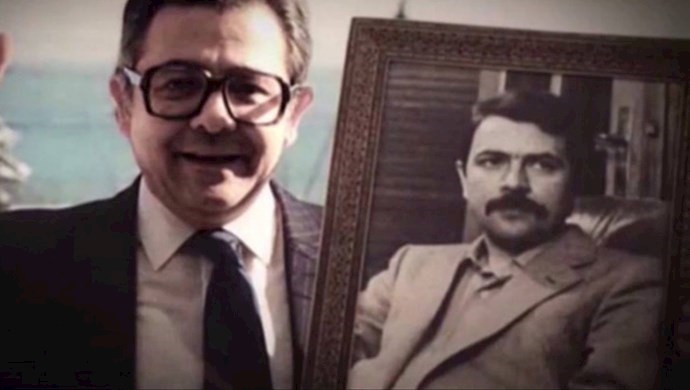
According to the National Council of Resistance of Iran (NCRI), the Swiss Federal Criminal Court has ordered the Federal Public Prosecutor’s Office to formally investigate the murder of Dr. Kazem Rajavi as genocide and a crime against humanity.
Dr. Kazem Rajavi, an NCRI representative who was based in Switzerland, was assassinated near Geneva in 1990 under the orders of the Iranian regime, barely 2 years after the 1988 massacre of 30,000 political prisoners in Iran. The new investigation is based off the reasoning that the massacre legally qualified as genocide, therefore Rajavi’s consequent assassination should be viewed as so.
The NCRI said, “The assassination of Dr. Rajavi was carried out by a 13-member commando team sent from Tehran on the direct order of then Intelligence Minister Ali Fallahian, against whom a Swiss court issued an international arrest warrant in 2006.”
Following Dr Rajavi’s assassination, the Swiss Prosecutor of the canton of Vaud launched a criminal investigation against the team accused of his murder, along with Ali Fallahian who instigated the assassination plot. An international arrest warrant for the 13 men was issued in 1997, and further warrant was issued for Fallahian in 2006.
As the thirty-year limitation period was due to expire in 2020, the public prosecutor gave notice on May 28, 2020 that they intended to close the investigation. In response, the Iranian Resistance have now declared that the assassination was an example of genocide and a crime against humanity, and therefore should not be subject to the investigation limitation period.
The NCRI said, “Since April 2020, the question of the assassination of Dr. Kazem Rajavi in the context of crime against humanity and genocide has been the subject of several legal discussions and bills between the public prosecutor of the canton of Vaud, and the public prosecutor of Confederation, who saw no reason to intervene in the affair and instruct it further.”
The case was finally sent to the Federal Criminal Court in February 2021 to be reviewed. Under the law, a case of genocide relates to the “intention of destroying in whole or in part a national, racial or religious group, ethnic, social or political, as such, kills members of the group or seriously undermines their physical or mental integrity.”
According to court reports, Iranian commandos had travelled between Iran and Switzerland three times between October 1989 and April 1990 during the planning of the assassination. It was during the last trip that Dr Rajavi was put under surveillance for a number of days leading up to April 24. Dr Rajavi was ambushed by two vehicles near his home, and the accused opened fire with a 9mm submachine gun.
The NCRI said, “Mr. Rajavi was killed on the spot. The perpetrators left Swiss soil in the hours following the crime and have since been the subject of international arrest warrants issued by the Swiss authorities, warrants which have today been lifted.”
According to public prosecutor’s investigations, assassinations were carried out across Europe between 1987 and 1993. Fallahian had already been under an international arrest warrant by German courts for his role in assassinations, as well as being wanted by Argentinian authorities in 2003 for his role in an earlier bomb attack in Buenos Aires.
The NCRI said, “The Federal Tribunal thus rejected the arguments of the public prosecutor’s office of the Confederation and ordered it to investigate the case in the context of crimes against humanity and genocide. The court also ordered the confederation prosecution to pay court costs in favor of the National Council of Resistance of Iran.”